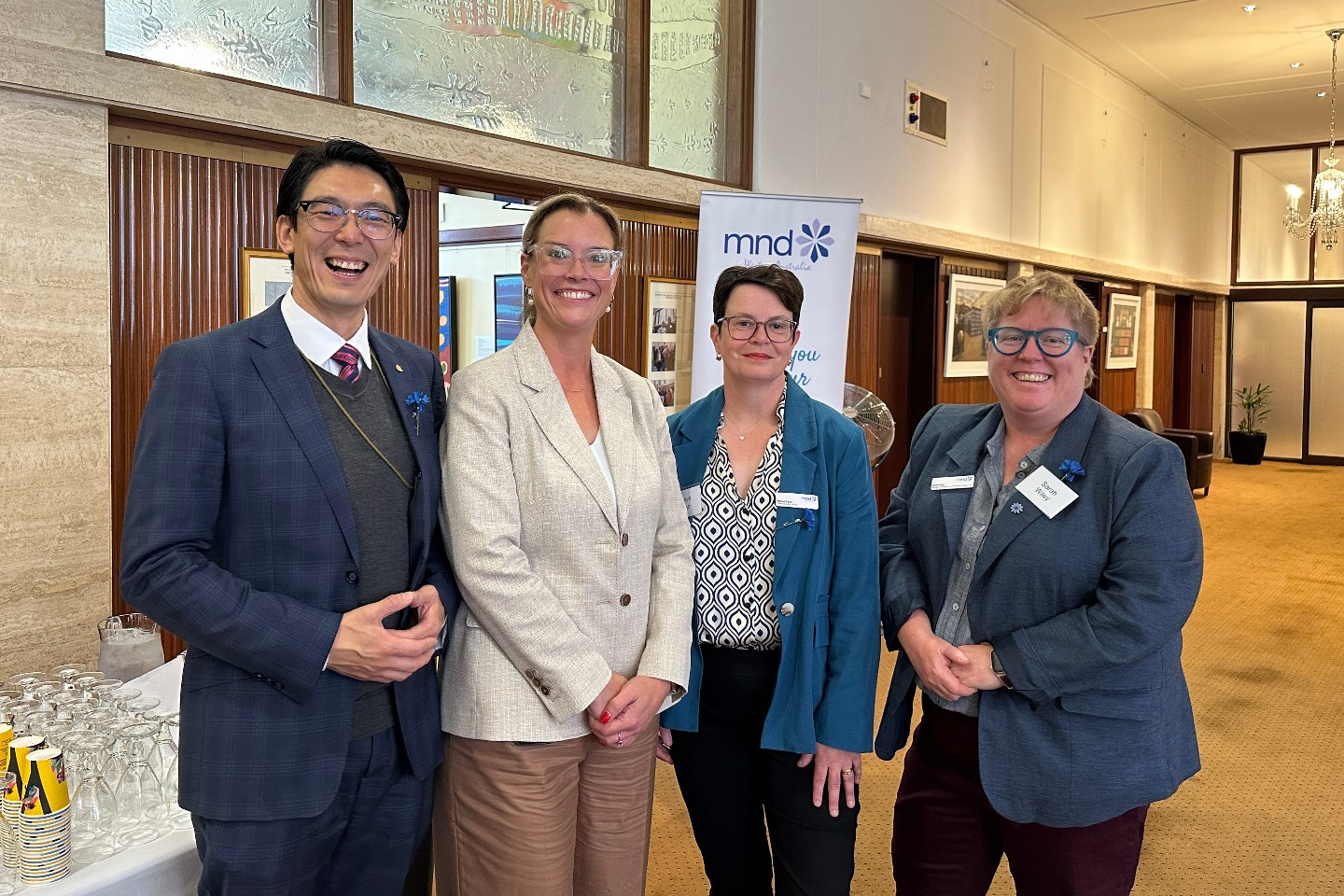The devastating impact of motor neurone disease on families across the world is recognised on June 21 each year, but the date also signifies a time of hope.


The devastating impact of motor neurone disease on families across the world is recognised on June 21 each year, but the date also signifies a time of hope.
Global MND Awareness Day takes place on the June solstice, symbolising a turning point for hope in the ongoing search for a cure for the progressive neurological condition.
MND attacks and degenerates the nerves that control the muscles used to move, speak, swallow and breathe, and the cause of the illness is still unknown.
Every day, two people in Australia are diagnosed with MND and two people die from the illness. People of any age and gender can be diagnosed and the average time from diagnosis to death is about 27 months.
The Motor Neurone Disease Association of WA (MNDAWA) has been supporting people with MND and their families for more than 42 years, offering a variety of services to alleviate the tremendous difficulties it causes.
"We are here for Western Australians, and specifically focused on ensuring that people with MND and their families get everything they need." MNDAWA chief executive Maeve Egan
The not-for-profit association encourages the community to learn more about the condition on Global MND Awareness Day and engage in conversation with others to increase awareness.
In the lead up to June 21, MNDAWA met with the Parliamentary Friends of MND where Ms Egan provided core statistics of MND and an update on the association’s services and priorities.
The event was hosted by co-convenors Hannah Beazley MLA, the Minister for Local Government, Disability Services, Volunteering and Youth, and Pierre Yang MLC, the Parliamentary Secretary to the Minister for Health and Mental Health.
The group heard two very personal stories, one from Dianne who is currently living with MND and another from Natalie who lost her mum to MND in 2023.
These speakers provided a strong representation of the impact of the disease and the value of the care and support provided by MNDAWA.

In recognition of Global MND Awareness Day, MNDAWA met with the Parliamentary Friends of MND.
The blue cornflower is the symbol of hope for MND around the world due to its fragile appearance yet hardy nature, as it survives well in tough conditions.
In recognition of this symbol, major infrastructure, venues, and buildings across Western Australia will light up blue on Global MND Awareness Day, showing support and raising awareness of MND.
In the Perth metropolitan area, these landmarks include Elizabeth Quay, Matagarup Bridge, Perth Bell Tower, Perth Council House, Yagan Square, Mount Street Bridge and Sky Ribbon (near Perth Airport).
Regional buildings across the state will also be coloured in blue light, including Mandurah Bridge, Queens Park Theatre in Geraldton, and a variety of locations in Bunbury such as Marlston Hill Lookout, Richmond Reserve, and Koombana Bay Footbridge and Foreshore.
Compassionate care
Tania Graves became one of the many individuals impacted by motor neurone disease after her father was diagnosed in 2024.
“It was a moment of shock and uncertainty for our family,” Ms Graves said.
“Dad’s doctor told me that MND is one of the most awful ways to die and seeing how my dad suffered so much, I can see why the doctor said that now.”
Ms Graves and her family received support from MNDAWA throughout her father’s journey with the degenerative condition, and beyond.
MNDAWA chief executive Maeve Egan said the association’s core purpose was to be a person-centred support service with specialist understanding of the complexities of MND.
“We are here for Western Australians, and specifically focused on ensuring that people with MND and their families get everything they need, from the time of diagnosis right through to end of life,” Ms Egan said.
“We really understand the complexity and degenerative nature of the disease, which means we have to move quickly to make sure that people get what they need as soon as they can.”
On average, MNDAWA loses five of its clients to MND and receives an average of five new referrals per month. It currently supports about 200 individuals living with MND as well as their carers and families.
You can read more about Tania Graves’ story and the vital services provided by MNDAWA here.













